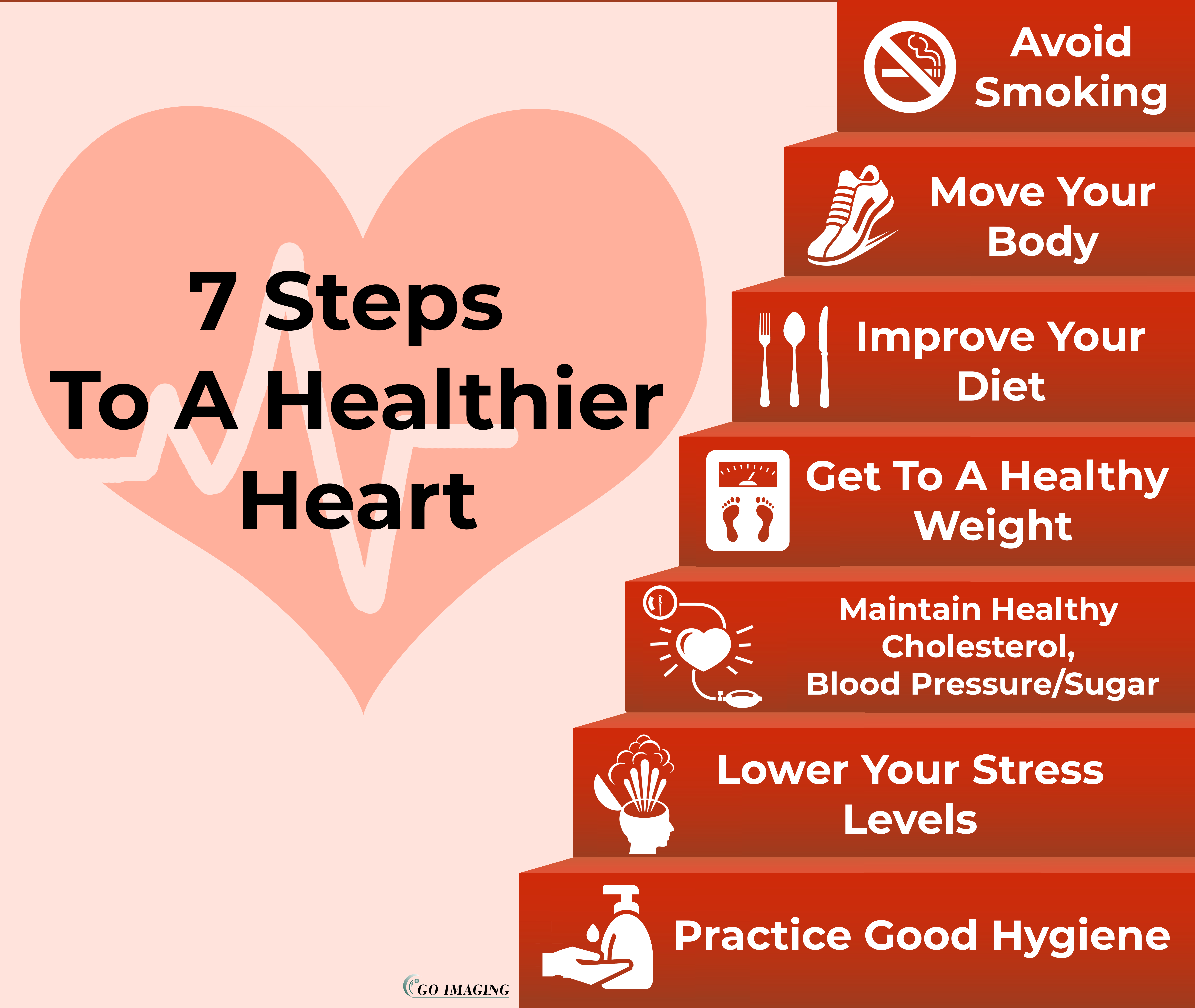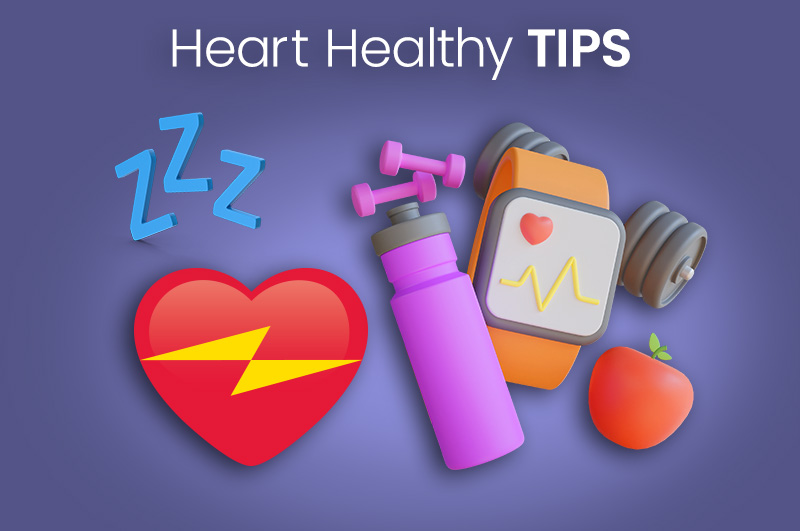Best lifestyle practices for heart health: A Comprehensive Guide

Best lifestyle practices for heart health sets the stage for this enthralling narrative, offering readers a glimpse into a story that is rich in detail and brimming with originality. The importance of heart health, nutrition tips, exercise recommendations, and stress management strategies all come together to create a holistic approach to maintaining a healthy heart.
The Importance of Heart Health

Maintaining heart health is crucial for overall well-being as the heart is the central organ responsible for pumping blood and oxygen throughout the body. A healthy heart ensures that all other organs receive the necessary nutrients and oxygen to function optimally.
Impact of Poor Heart Health
Poor heart health can significantly impact daily life, leading to conditions such as heart disease, heart attacks, and strokes. These conditions can result in reduced energy levels, chest pain, shortness of breath, and even death if left untreated.
Global Statistics on Heart Disease
According to the World Health Organization (WHO), heart disease is the leading cause of death worldwide. It accounts for approximately 17.9 million deaths annually, with the number expected to rise in the coming years.
Benefits of Maintaining a Healthy Heart
- Lower risk of heart disease and other cardiovascular conditions
- Improved overall physical fitness and endurance
- Enhanced quality of life and longevity
- Better mental health and reduced stress levels
- Increased energy and vitality for daily activities
Nutrition for Heart Health
Proper nutrition plays a crucial role in maintaining a healthy heart. By incorporating heart-healthy foods into your daily meals and understanding the importance of key nutrients, you can support your heart health in the long run.
Heart-Healthy Foods to Incorporate
- Leafy greens (e.g., spinach, kale)
- Fatty fish rich in Omega-3 fatty acids (e.g., salmon, mackerel)
- Nuts and seeds (e.g., almonds, chia seeds)
- Whole grains (e.g., quinoa, brown rice)
- Berries (e.g., blueberries, strawberries)
Role of Omega-3 Fatty Acids
Omega-3 fatty acids are essential nutrients that have been linked to numerous heart health benefits. They can help reduce inflammation, lower blood pressure, and decrease the risk of developing heart disease. Incorporating sources of Omega-3s, such as fatty fish, into your diet can have a positive impact on your heart health.
Balanced Diet vs. Unhealthy Diet
A balanced diet rich in fruits, vegetables, whole grains, and lean proteins can help lower the risk of heart disease by providing essential nutrients and reducing the intake of unhealthy fats and sugars.
In contrast, an unhealthy diet high in processed foods, saturated fats, and added sugars can contribute to weight gain, high cholesterol levels, and increased blood pressure, all of which are risk factors for heart disease.
Significance of Portion Control
Maintaining portion control is vital for heart health as it helps prevent overeating and ensures you are consuming the right amount of nutrients. By monitoring portion sizes and being mindful of your food intake, you can better manage your weight and reduce the strain on your heart.
Exercise and Physical Activity

Regular exercise and physical activity play a crucial role in maintaining optimal heart health. By staying active, you can reduce the risk of heart disease and improve overall cardiovascular fitness.
Recommended Amount of Exercise
- Aim for at least 150 minutes of moderate-intensity aerobic exercise per week.
- Alternatively, strive for 75 minutes of vigorous-intensity aerobic activity weekly.
- Incorporate strength training exercises at least two days a week to improve muscle strength.
Types of Exercises for Heart Health
- Cardiovascular exercises like running, cycling, swimming, or dancing can boost heart health.
- Interval training, which involves alternating between high-intensity and low-intensity exercises, is effective for heart health.
- Yoga and Pilates can improve flexibility, strength, and overall well-being, contributing to heart health.
Link Between Physical Activity and Heart Disease Prevention
Regular physical activity helps lower blood pressure, improve cholesterol levels, and maintain a healthy weight, reducing the risk of heart disease. Exercise also enhances circulation, strengthens the heart muscle, and promotes overall cardiovascular health.
Simple Exercises for Heart Health at Home
- Brisk walking or jogging in place
- Jumping jacks or skipping rope
- Bodyweight exercises like squats, lunges, and push-ups
Stress Management and Mental Well-being

Stress can have a significant impact on heart health. When we experience stress, our body releases hormones like adrenaline and cortisol, which can increase heart rate and blood pressure. Prolonged exposure to stress can lead to inflammation, a risk factor for heart disease.
Strategies for Managing Stress Effectively
- Practice mindfulness and meditation to help calm the mind and reduce stress levels.
- Engage in regular physical activity, which can help release endorphins and improve mood.
- Establish a support network of friends and family to talk to during stressful times.
- Set realistic goals and priorities to avoid feeling overwhelmed.
Relationship between Mental Well-being and Heart Health
- Positive mental well-being can lead to lower levels of stress and better heart health overall.
- Chronic stress and negative emotions like anger and hostility have been linked to an increased risk of heart disease.
- Seeking professional help through therapy or counseling can also improve mental well-being and reduce stress levels.
Relaxation Techniques for a Healthy Heart
- Deep breathing exercises can help calm the body and reduce stress.
- Yoga and tai chi are physical activities that combine movement with mindfulness for overall well-being.
- Listening to calming music or practicing visualization techniques can also promote relaxation.
Closure
In conclusion, adopting the best lifestyle practices for heart health is not just about preventing disease but also about enhancing overall well-being. By focusing on nutrition, exercise, stress management, and mental well-being, you can pave the way for a healthier heart and a happier life.
Question & Answer Hub
How does stress impact heart health?
Stress can lead to the release of hormones that are harmful to the heart, increasing the risk of heart disease.
What are some heart-healthy foods to include in daily meals?
Examples include fruits, vegetables, whole grains, nuts, seeds, and fatty fish rich in Omega-3 fatty acids.
What are the recommended types of exercises for optimal heart health?
Aerobic exercises like walking, jogging, swimming, and cycling are great for the heart.
How can portion control contribute to a healthy heart?
Controlling portion sizes can help maintain a healthy weight, reducing the risk of heart disease.

